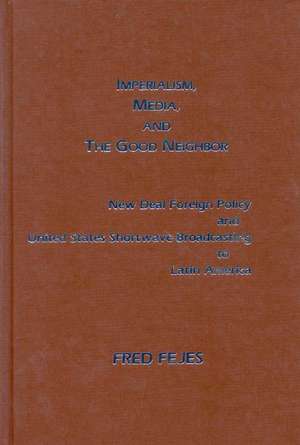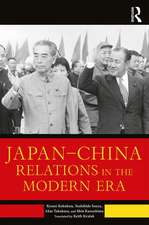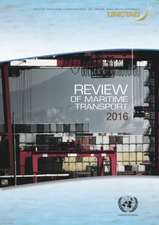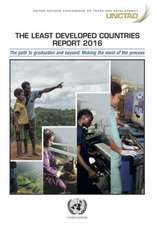Imperialism, Media and the Good Neighbor: New Deal Foreign Policy and United States Shortwave Broadcasting to Latin America: Communication and Information Sciences
Autor Fred Fejes, Unknownen Limba Engleză Hardback – 31 dec 1985
This study presents an historical account of the expansion of United States interests in Latin American communications in the first half of this cntury. Particular emphasis is placed on how United States shortwave broadcasting was used as a vehicle for the penetration and dominance of Latin American mass communication systems. This penetration is analyzed in relation to the overall context of the goals and activities of the Good Neighbor Policy of Franklin D. Roosevelt. Conversely, with the development of shortwave broadcasting as a tool of foreign policy, there arose the need to restructure the traditional relations between the broadcasting industry and government. This study describes the process by which the American broadcasting industry came to accept government control and dominance in the field of international broadcasting. Finally, this study attempts to show how such an historical account as this can be used to eluciate the notion of media imperialism.
Din seria Communication and Information Sciences
- 38%
 Preț: 438.76 lei
Preț: 438.76 lei - 28%
 Preț: 300.62 lei
Preț: 300.62 lei - 38%
 Preț: 344.47 lei
Preț: 344.47 lei - 27%
 Preț: 345.15 lei
Preț: 345.15 lei - 35%
 Preț: 269.76 lei
Preț: 269.76 lei - 35%
 Preț: 364.22 lei
Preț: 364.22 lei - 38%
 Preț: 444.17 lei
Preț: 444.17 lei - 38%
 Preț: 345.42 lei
Preț: 345.42 lei - 39%
 Preț: 498.33 lei
Preț: 498.33 lei - 38%
 Preț: 346.07 lei
Preț: 346.07 lei - 38%
 Preț: 438.07 lei
Preț: 438.07 lei - 24%
 Preț: 462.70 lei
Preț: 462.70 lei - 38%
 Preț: 436.80 lei
Preț: 436.80 lei - 38%
 Preț: 439.34 lei
Preț: 439.34 lei - 38%
 Preț: 437.31 lei
Preț: 437.31 lei - 28%
 Preț: 437.67 lei
Preț: 437.67 lei - 38%
 Preț: 438.00 lei
Preț: 438.00 lei - 27%
 Preț: 438.84 lei
Preț: 438.84 lei - 27%
 Preț: 439.17 lei
Preț: 439.17 lei - 38%
 Preț: 345.15 lei
Preț: 345.15 lei - 38%
 Preț: 443.66 lei
Preț: 443.66 lei - 27%
 Preț: 438.59 lei
Preț: 438.59 lei - 24%
 Preț: 363.64 lei
Preț: 363.64 lei - 28%
 Preț: 438.00 lei
Preț: 438.00 lei - 38%
 Preț: 438.59 lei
Preț: 438.59 lei - 38%
 Preț: 438.93 lei
Preț: 438.93 lei - 38%
 Preț: 438.67 lei
Preț: 438.67 lei - 38%
 Preț: 346.00 lei
Preț: 346.00 lei - 38%
 Preț: 440.28 lei
Preț: 440.28 lei - 37%
 Preț: 350.98 lei
Preț: 350.98 lei - 38%
 Preț: 345.42 lei
Preț: 345.42 lei - 24%
 Preț: 466.60 lei
Preț: 466.60 lei - 18%
 Preț: 300.42 lei
Preț: 300.42 lei - 18%
 Preț: 297.31 lei
Preț: 297.31 lei - 31%
 Preț: 344.05 lei
Preț: 344.05 lei - 38%
 Preț: 440.53 lei
Preț: 440.53 lei - 38%
 Preț: 438.24 lei
Preț: 438.24 lei - 38%
 Preț: 442.73 lei
Preț: 442.73 lei - 38%
 Preț: 435.05 lei
Preț: 435.05 lei - 38%
 Preț: 344.98 lei
Preț: 344.98 lei - 38%
 Preț: 438.93 lei
Preț: 438.93 lei - 14%
 Preț: 309.84 lei
Preț: 309.84 lei - 27%
 Preț: 439.51 lei
Preț: 439.51 lei - 38%
 Preț: 440.28 lei
Preț: 440.28 lei - 27%
 Preț: 439.77 lei
Preț: 439.77 lei - 38%
 Preț: 439.44 lei
Preț: 439.44 lei - 20%
 Preț: 521.51 lei
Preț: 521.51 lei
Preț: 436.73 lei
Preț vechi: 707.16 lei
-38% Nou
83.58€ • 90.75$ • 70.21£
Carte tipărită la comandă
Livrare economică 22 aprilie-06 mai
Specificații
ISBN-10: 0893913219
Pagini: 204
Dimensiuni: 156 x 234 x 13 mm
Greutate: 0.46 kg
Editura: Ablex Publishing Corporation
Seria Communication and Information Sciences




















